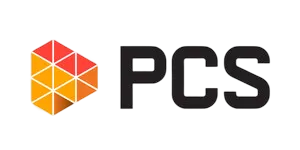Hardware Asset Management
Outdated Hardware Is Holding You Back—Let’s Fix That
You rely on technology to keep your business running smoothly. But when hardware issues keep piling up, your team loses valuable time, productivity drops, and growth slows to a crawl.
The Real Problem?
Most businesses don’t have a clear, proactive hardware asset strategy. Without one, you’re stuck managing outdated equipment, dealing with surprise breakdowns, and wasting hours tracking devices manually. It’s frustrating—and costly.
You Deserve Better.
At PCS, we take the burden of hardware management off your plate. We help you:
-
Track and manage inventory so nothing falls through the cracks
-
Plan timely upgrades to avoid performance lags and breakdowns
-
Stay ahead of costs with preventive maintenance and smart budgeting
-
Equip your team with reliable tools so they can perform at their best
When your hardware works the way it should, your business does too. Let PCS help you build a reliable foundation for innovation, efficiency, and long-term success—without the tech headaches.
Request More Information
PCS Keeps Your Hardware Running Smarter, Longer
When you don’t have time to manage hardware—but you can’t afford for it to fail—you need a partner who handles it all, proactively.
At PCS, we specialize in comprehensive hardware asset management that helps you stay ahead of breakdowns, surprise costs, and compliance headaches. Our approach is built to support your business goals, not distract from them.
Here’s how we help you take control:
-
Know What You Have:
With powerful asset tracking tools, we give you a clear picture of your entire hardware inventory. You’ll never be caught off guard by missing, aging, or underperforming equipment again. -
Prevent Problems Before They Start:
Our predictive maintenance programs analyze your equipment’s performance to detect and resolve issues before they cause downtime—saving you time, money, and frustration. -
Stay Compliant, Stay Confident:
We help you meet industry standards by keeping detailed logs of your hardware configurations, upgrades, and lifecycle events. -
Protect Your Investment:
From firmware updates to security patches, we close the gaps that leave your systems vulnerable—so your hardware remains both functional and secure.
It’s Time to Take Control of Your Hardware — and Your Time
You shouldn’t have to wrestle with failing devices or disorganized inventory just to keep your business moving. When your hardware is properly managed, everything runs smoother—from daily tasks to long-term growth plans.
PCS is here to help you get there.
Why partner with us?
-
Real Expertise: Our experienced team knows how to manage complex IT environments so you don’t have to.
-
Tailored to You: No one-size-fits-all solutions—we align your hardware management with your specific goals.
-
Always On: With 24/7/365 support, your hardware stays reliable, secure, and ready for whatever’s next.
Let PCS be the partner that turns your tech chaos into clarity.
Available Services
Core Support Services
Focused on the immediate, day-to-day IT support needs of end-users
Infrastructure Support
Maintenance and management of your IT infrastructure that supports the entire organization
Strategic IT Consulting
Designed for services that provide high-level IT strategy, planning, and management
